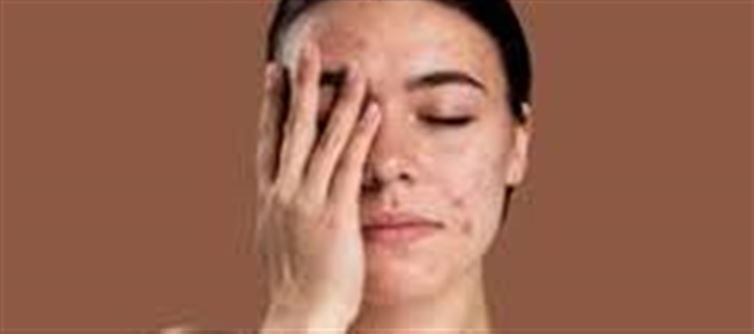
Acne is one of the most common skin concerns worldwide, affecting not just teenagers but adults as well. Despite its prevalence, acne remains one of the most misunderstood conditions. Over the years, countless myths and misconceptions about acne have been passed down through generations, often leading to confusion and improper treatment. These myths can delay the right approach to managing acne, making it harder to achieve clear, healthy skin. Here, we debunk 8 common acne myths you need to stop believing.
1. Acne is Only Caused by Poor Hygiene
One of the biggest myths is that acne is the result of dirty skin. While it’s essential to keep your skin clean, acne isn’t caused by dirt or oil buildup alone. Acne occurs when hair follicles become clogged with excess sebum (skin oil), dead skin cells, or bacteria. Over-washing or scrubbing your skin harshly can actually worsen acne by irritating the skin and increasing oil production.
2. Eating chocolate and Greasy Foods Causes Acne
There’s a common belief that eating chocolate, pizza, or fried foods directly leads to acne breakouts. While a poor diet can influence overall skin health, no single food has been scientifically proven to directly cause acne. However, consuming foods high in sugar or dairy may contribute to acne for some individuals, as these foods can trigger hormonal changes that affect oil production in the skin.
3. Tanning Clears Acne
Many people believe that sun exposure helps clear up acne by drying out the skin. While the sun might temporarily reduce the appearance of acne due to its drying effects, prolonged exposure to UV rays can actually damage the skin, cause premature aging, and worsen acne over time. Additionally, some acne medications, like topical retinoids, can make your skin more sensitive to sunlight.
4. Acne is Only a Teenage Problem
Acne is often seen as a problem that only affects teenagers, but in reality, adult acne is just as common. Hormonal changes, stress, or even lifestyle factors like diet and sleep can trigger breakouts in people well into their 30s, 40s, or even 50s. In fact, adult women are especially prone to acne due to hormonal fluctuations related to menstruation, pregnancy, and birth control.
5. Popping Pimples Helps Them Heal Faster
It’s tempting, but popping pimples can make acne worse, not better. When you pop a pimple, you risk pushing bacteria deeper into the skin, which can lead to more inflammation, scarring, and even more pimples. The best approach is to leave pimples alone and let them heal naturally, or seek proper treatment options to reduce inflammation.
6. The Stronger the Acne Treatment, the Better
While it may seem logical that a stronger acne treatment would work faster, using harsh treatments, such as strong benzoyl peroxide or salicylic acid, can damage the skin if overused. This can lead to dryness, redness, and irritation, which can actually worsen acne. Instead, opt for treatments suited for your skin type and use them consistently over time. It’s also crucial to use products that balance and hydrate the skin.
7. Acne is Only Caused by Oil
Many believe that acne is caused solely by excess oil on the skin. While sebum production is a factor, acne is a multifactorial condition. It involves clogged pores, bacteria (especially Propionibacterium acnes), hormonal fluctuations, and inflammation. In fact, some people with acne have dry skin but still suffer from breakouts due to other factors such as diet, stress, and genetics.
8. Acne Will Go Away on Its Own Without Treatment
While some mild cases of acne may improve with time, untreated acne can worsen, leading to more severe breakouts and potentially scarring. Acne treatments, whether topical or oral, can effectively reduce inflammation, control oil production, and prevent scarring. If you have persistent acne, it's important to consult a dermatologist to develop a treatment plan tailored to your skin’s needs.
Conclusion: The Truth About Acne
Acne may seem like a simple skin issue, but it’s actually a complex condition influenced by multiple factors, including hormones, genetics, lifestyle, and skincare habits. The myths surrounding acne can delay effective treatment, making it crucial to approach acne management with accurate information. Instead of relying on outdated advice or quick fixes, focus on understanding your skin's needs and consult a healthcare professional to find the best treatment plan for your unique case. With the right knowledge and care, clear skin is within reach.
Disclaimer:
The views and opinions expressed in this article are those of the author and do not necessarily reflect the official policy or position of any agency, organization, employer, or company. All information provided is for general informational purposes only. While every effort has been made to ensure accuracy, we make no representations or warranties of any kind, express or implied, about the completeness, reliability, or suitability of the information contained herein. Readers are advised to verify facts and seek professional advice where necessary. Any reliance placed on such information is strictly at the reader’s own risk..jpg)




 click and follow Indiaherald WhatsApp channel
click and follow Indiaherald WhatsApp channel